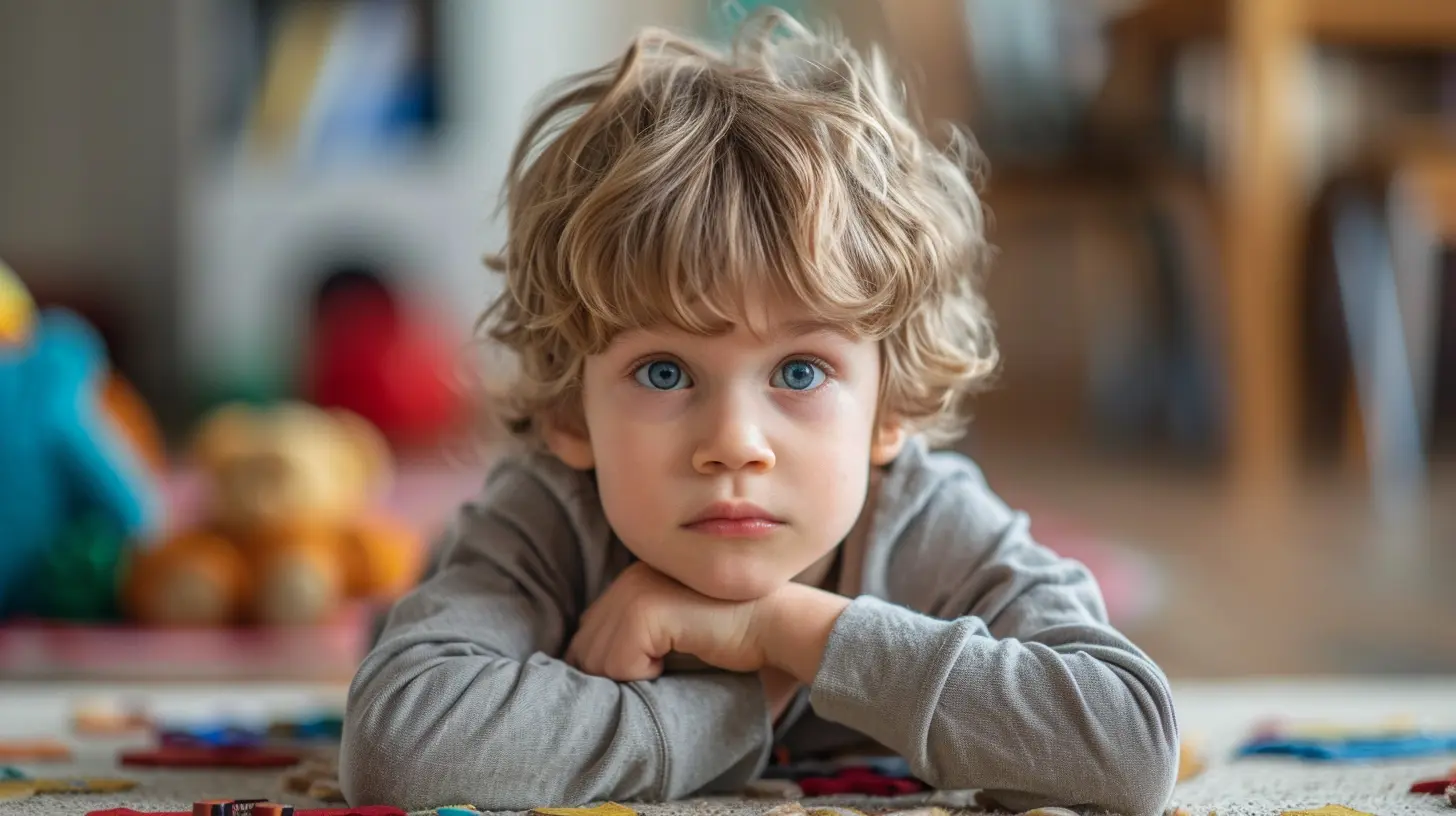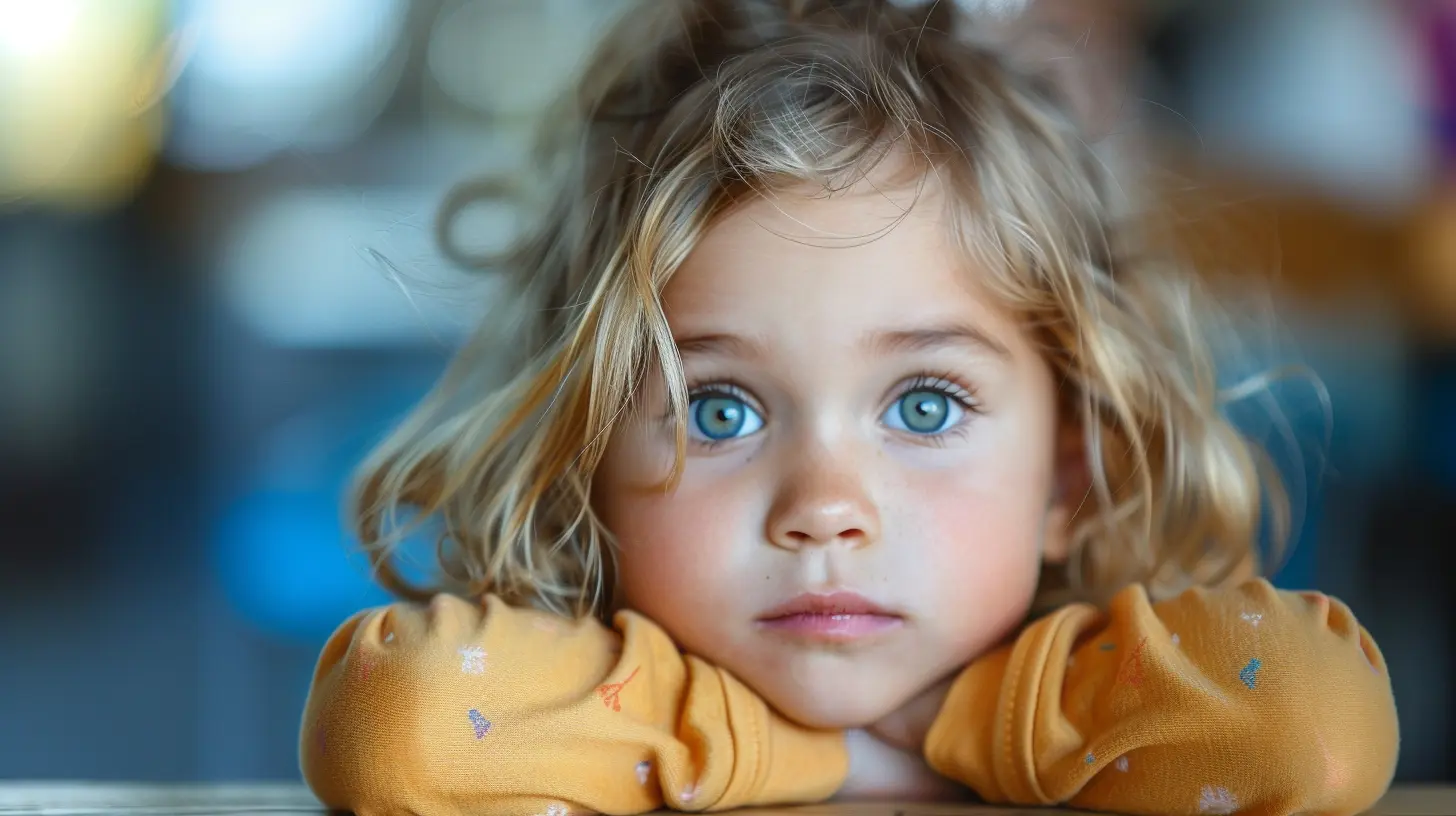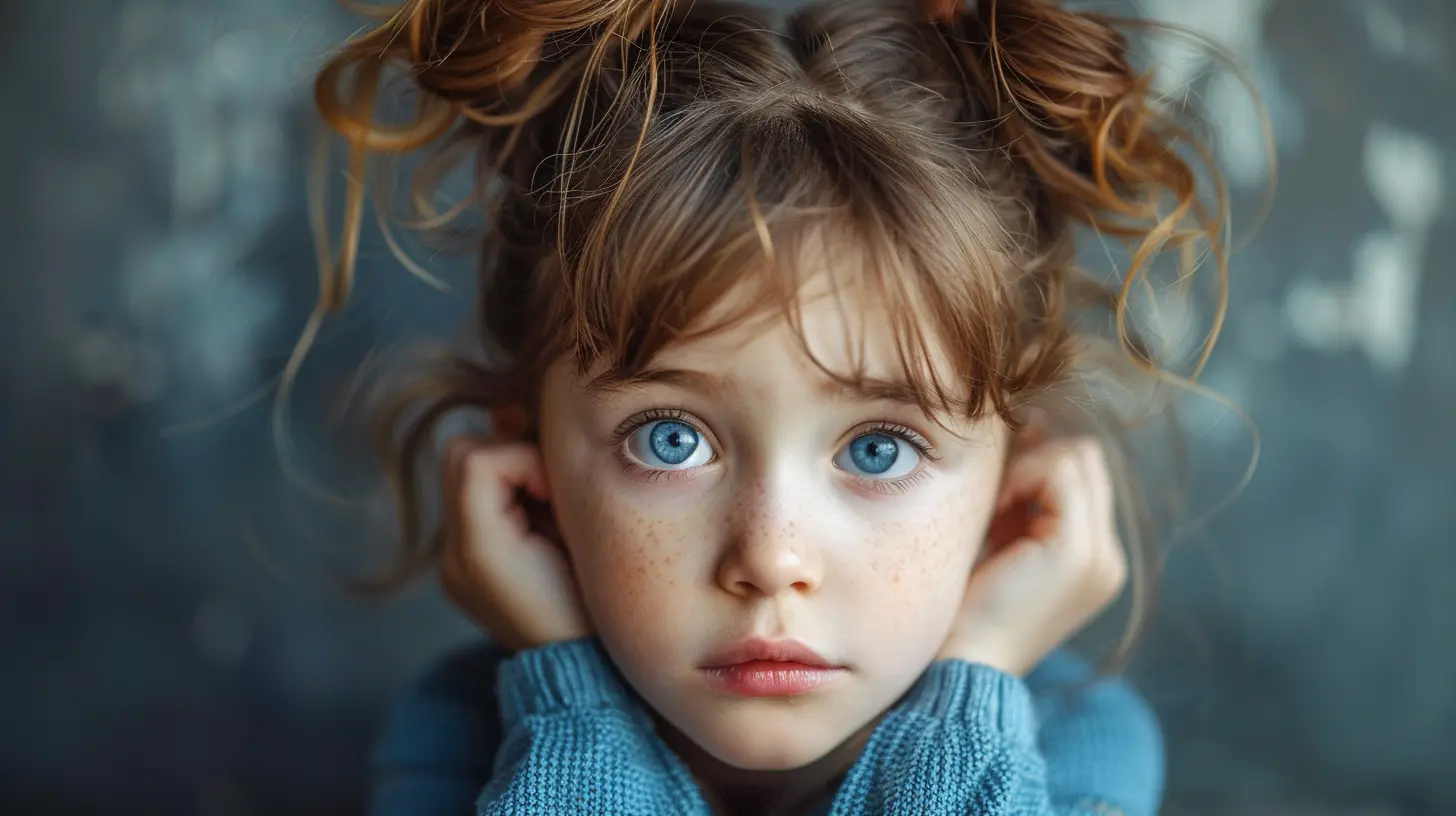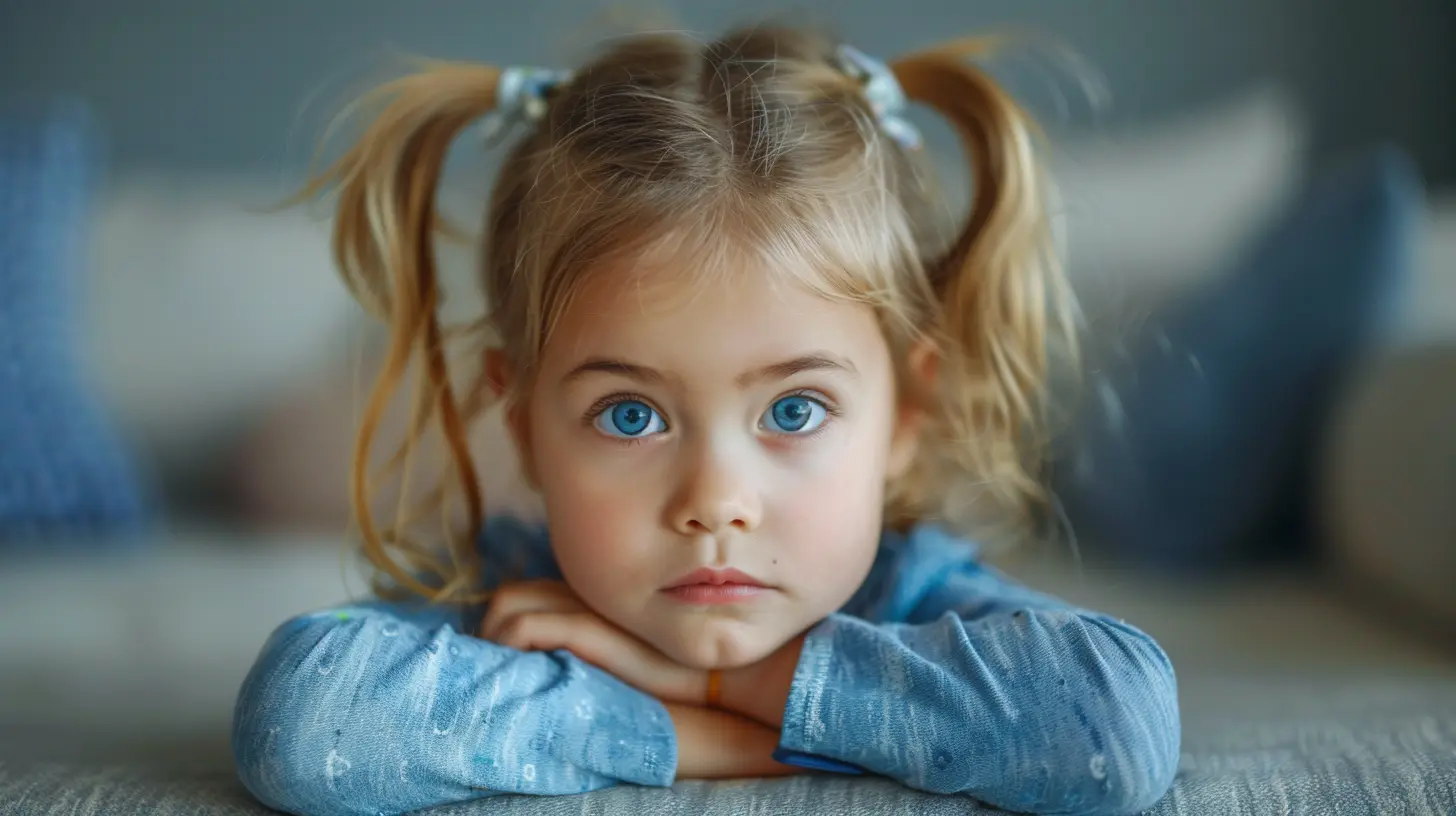Navigating Separation Anxiety in Preschoolers
25 April 2025
Separation anxiety in preschoolers can be one of the most heart-wrenching challenges for both parents and children. Picture this: your little one clinging to your leg, tears streaming down their face, as you attempt to leave them at preschool. It's tough, right? But here's the deal—it’s completely normal, and with the right tools, you can help your child (and yourself) navigate this emotional rollercoaster.
In this article, we’ll dive deep into what separation anxiety is, why it happens, and more importantly, how to handle it like a pro. Ready to say goodbye to those tear-streaked mornings? Let’s get started!

What Is Separation Anxiety?
Separation anxiety is exactly what it sounds like—the distress your child feels when they're separated from you. It's a phase most kids go through, especially when they start preschool or daycare. The child feels anxious and fearful when their primary caregiver (usually mom or dad) is not around, leading to crying, tantrums, or even clinging behavior.But here's the thing: it's a natural part of development! Preschoolers are at an age where they're learning about trust, independence, and attachment. Their world is expanding, and that’s a big deal for them. While it may feel like a huge problem right now, it’s just a sign that your child loves you and feels safe with you.
Why Does It Happen?
Separation anxiety typically occurs between the ages of 1 and 4, but it can extend into the preschool years for some children. Why? Well, young kids are still figuring out the concept of object permanence. Object permanence is the understanding that things (and people) continue to exist even when they can't see them. Before they fully grasp this, your child might believe that when you leave, you’re gone forever.On top of that, kids are creatures of habit. They thrive on routine and predictability. When their daily schedule changes—like starting preschool—it can feel like their world is spinning out of control. And what do we do when we're overwhelmed? We reach for comfort. For them, that comfort is you.

Signs Your Child May Have Separation Anxiety
Separation anxiety can manifest in different ways, and every child is unique. Some might cry the moment you walk out the door, while others may show more subtle signs. Here are common behaviors to watch for:- Crying or tantrums when you leave: This is the most obvious sign. Your child might scream or cry as soon as you say goodbye.
- Clinginess: They may stick to your side like glue, refusing to let go.
- Fear of being alone: Even at home, they may follow you from room to room, afraid to be by themselves.
- Trouble sleeping: Some kids might struggle with bedtime, fearing separation at night.
- Physical symptoms: Believe it or not, stress can cause physical symptoms like stomachaches or headaches.
While these signs are typical for children with separation anxiety, it's important to note that they should decrease over time with consistent support and patience. If the anxiety persists or worsens, it may be worth consulting a pediatrician or child psychologist.

How to Ease Separation Anxiety in Preschoolers
Alright, now that we've identified the signs and causes, let’s get to the good stuff—what you can do about it. The goal is to help your child feel safe, secure, and confident even when you're not around. Here are some strategies that can make a world of difference.1. Establish a Goodbye Routine
Routines are like a security blanket for preschoolers. When they know what to expect, it helps reduce anxiety. Create a short, consistent goodbye ritual that you do every day. It could be something as simple as a hug, a special handshake, or saying, “See you later, alligator!” When your child knows the routine, they’ll feel more in control.But here’s the key: keep it short and sweet. Lingering around or giving in to one more hug can actually make things worse. Say your goodbye, reassure them that you’ll be back, and then leave.
2. Practice Short Separations
If your child isn't used to being away from you, start with short separations and build up to longer ones. For example, leave them with a trusted family member or friend for 10-15 minutes while you step out. Gradually increase the time. This helps them get used to the idea that you’ll come back.Just like learning to ride a bike, practice makes perfect!
3. Talk About Preschool Positively
Your child takes cues from you, so if you’re anxious about leaving them at preschool, they will be too. Talk about school positively! Focus on the fun activities they’ll do, the friends they’ll make, and the exciting toys they’ll play with. Avoid mentioning anything that could make them more nervous, like how much you’ll miss them.Instead of saying, "I'm going to miss you so much!" try, "I can't wait to hear about all the fun things you did today!"
4. Play Separation Games
Games like “peek-a-boo” or hide-and-seek can help preschoolers understand that even when they can’t see you, you're still there. These games reinforce the concept of object permanence in a fun, stress-free way.Another great game? Pretend play! Act out scenarios where you “go to work” or “run errands” and then come back. This helps normalize short separations in a playful context.
5. Stick to a Consistent Schedule
Preschoolers thrive on routine. Having a consistent drop-off and pick-up time can be incredibly reassuring. If your child knows that you’ll always pick them up after snack time or nap time, they’ll start to relax and trust the process.6. Bring a Comfort Object
If your child's preschool allows it, let them bring a small comfort item from home, like a stuffed animal or a blanket. Having something familiar with them can help ease their anxiety and make the separation feel less overwhelming.This is their little piece of home in the big, wide world of school.
7. Validate Their Feelings
Remember, separation anxiety isn’t something your child is doing to be difficult. They’re genuinely scared! It’s important to validate their feelings rather than dismiss them. Instead of saying, “You’re fine,” try, “I know you’re feeling sad that I’m leaving, but I’ll be back soon.”By acknowledging their emotions, you’re sending the message that it’s okay to feel upset, but everything will be alright.
8. Stay Calm and Confident
Your child looks to you for reassurance. If you’re stressed or emotional, they’ll pick up on that energy. Stay calm, confident, and positive during drop-offs. Smile, speak in a soothing tone, and trust that they’ll be okay.It’s tough, but sometimes the best thing you can do is walk away with a smile, even if your heart is breaking inside.
9. Communicate with the Teacher
Teachers are your allies in this process. Let them know about your child’s separation anxiety so they can provide extra support. Some teachers might have their own strategies for helping kids adjust, like offering distractions or engaging them in an activity right after you leave.10. Be Patient
Lastly, be patient. Separation anxiety doesn’t resolve overnight. It’s a gradual process. Some days will be easier than others, and that’s okay. Celebrate the small wins—like a day with fewer tears or quicker goodbyes—and keep moving forward.
When to Seek Professional Help
For most kids, separation anxiety is a temporary phase that improves with time and support. But if your child’s anxiety is severely affecting their daily life—like if they’re refusing to go to school, having frequent nightmares, or showing signs of extreme distress—it might be time to seek help from a professional.A child psychologist or counselor can offer additional strategies and support to help your child manage their anxiety.
Wrapping It All Up
Separation anxiety is tough, but it’s also a normal part of growing up. With patience, consistency, and a whole lot of love, you can help your preschooler navigate this tricky phase. Remember, the goal isn’t to eliminate their anxiety completely—it’s to give them the tools to cope with it. And before you know it, those tearful goodbyes will turn into confident waves at the door.So take a deep breath, trust the process, and know that you’ve got this!
all images in this post were generated using AI tools
Category:
Child DevelopmentAuthor:

Alexandra Butler
Discussion
rate this article
3 comments
Gwen Davis
This article is super helpful! Separation anxiety can be tough for both kids and parents. I love the practical tips you shared—definitely trying them out with my little one!
May 4, 2025 at 3:41 PM

Alexandra Butler
Thank you for your kind words! I'm glad you found the tips helpful. Wishing you and your little one the best as you navigate this together!
Ronan McKeehan
Understanding triggers and consistent routines can alleviate preschool separation anxiety.
May 3, 2025 at 4:50 AM

Alexandra Butler
Absolutely! Identifying triggers and establishing consistent routines can significantly help ease separation anxiety in preschoolers, providing them with a sense of security and predictability.
Wendy Duke
Separation anxiety in preschoolers: the only time a tiny human can turn into a drama queen faster than you can say 'playdate!' Just remember, every tear shed is a tiny Oscar-worthy performance. Time for some parental popcorn!
April 26, 2025 at 4:10 AM

Alexandra Butler
Absolutely! It’s all about embracing those dramatic moments with humor and understanding. Every tear is a step toward independence! 🍿



